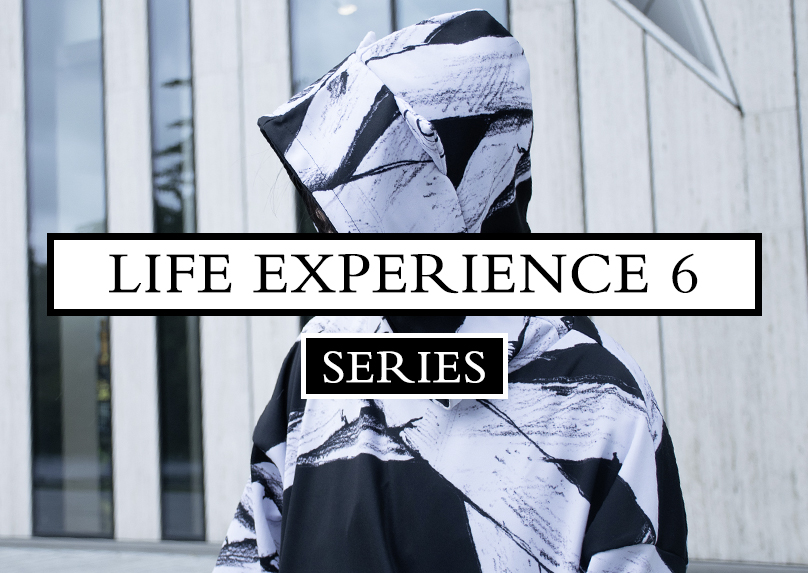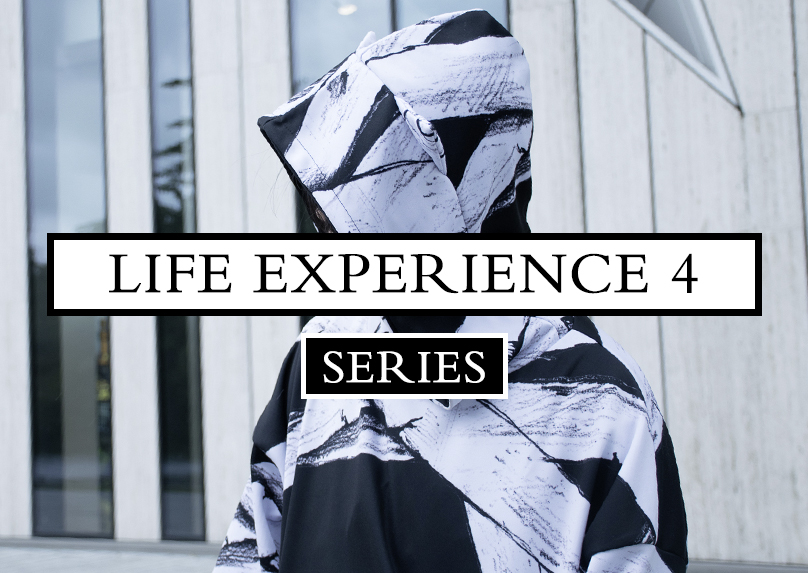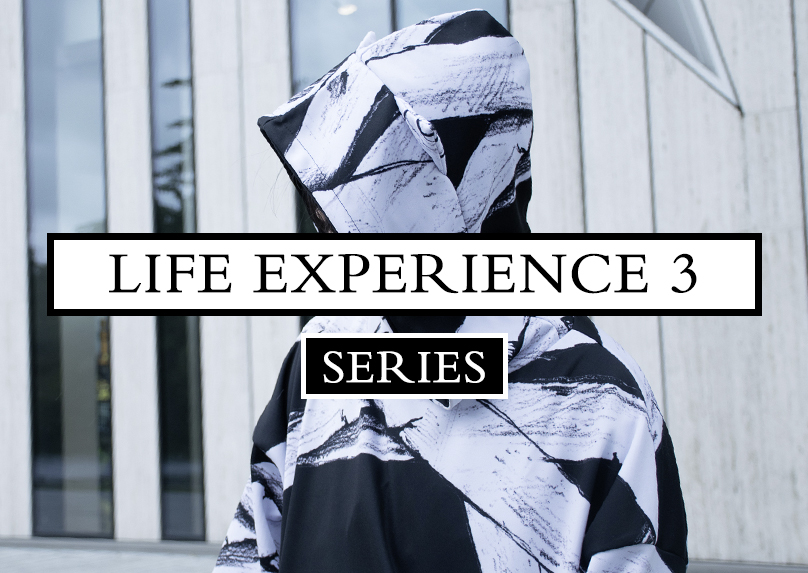
Life experience ·5·
Avoidance personality disorder and the fear of abandonment
I’ve been thinking about what to write for my next blog post. If you have read some of my posts, you probably know that I often write about my feelings and thoughts, which are really personal. I don’t really know why I can write about those so openly, but it helps me personally to put it into words.
I recently talked to a friend of mine who told me that she spoke to a psychologist and was diagnosed as sociophobic or with a kind of social anxiety disorder. She then brought up that it might be an avoidance personality disorder, because she looked up the symptoms she talked about with her psychologist. Of course we know that it usually isn’t recommended to look up stuff like this on the internet, but what she explained to me made a lot of sense concerning all the problems I have had described in my blog posts before. I recognized all the symptoms of the disorder that were described. I always thought that the problems I had with making friends or being sociable is due to me being extremely introverted. It might be related, but there is actually a difference. After talking to my friend, I did some more research about the differences between introversion, social anxiety and avoidance personality disorder.
Introversion, social anxiety and avoidance personality disorder
Introversion
I read several articles to try to understand what those are about. So I would like to break down the stuff I found and talk about the ones I could identify with.
While introverts do enjoy the company of others, they get drained when sozialising and recharge by spending time alone. They can perfectly spend time by themselves with quiet solitary activities like reading, writing, drawing or gaming. They rather pass their time with a few friends than attending a party with a huge group of people and many will avoid smalltalk or other social interactions they deem unnecessary. In the following are some further explanations concerning introversion I found on this website.
- Introverts are not necessarily socially awkward. Just like shyness, social awkwardness is a separate trait from introversion. Many introverts can actually be quite charismatic in social situations. (In fact, introverts account for 60 percent of all lawyers, a profession that requires quite a bit of confidence speaking in front of others.)
- Introverts don’t hate people. An introvert’s lack of chitchat is often misinterpreted. People take it as a sign that we don’t like others. The truth is the opposite. Introverts often avoid small talk because we consider it to be inauthentic. We crave a more meaningful connection with the people we talk to.
- Introverts aren’t rude. Yes, if an introvert is completely out of social energy, we might start getting a little crabby or simply zone out. But we’re not trying to be rude — and we’ll be a lot more friendly if you give us some time to recharge alone.
- Introverts don’t need be “fixed.” Being an introvert is part of who we are, and it can be a source of brilliance. We are at our best when we embrace our nature and use it as a source of strength.
- Introverts don’t (usually) wish we were extroverted. Sure, sometimes introverts envy an extrovert’s ability to think quickly or fit naturally into a social situation. But we also take great delight in our inner world and our alone time. Introverts have many strengths that don’t come naturally to extroverts, and we wouldn’t trade them for the world.
Introverts tend to:
- Enjoy spending time alone
- Get drained by certain types of socializing (the “introvert hangover”)
- Do their best work alone
- Would rather hang out with one or two close friends than a large group of people
- Are often “in their heads”
- May have a vivid, rich inner world
- Prefer to stay out of the spotlight
- Feel like they’re faking it when they have to network
- May struggle with word retrieval (choosing exactly the right words on the fly)
- Are better at writing their thoughts than speaking them
- Dive deep, both in their relationships and interests
- Seek meaning in their jobs and relationships
- Feel out of place in an “extroverted” society
Social anxiety and avoidance personality disorder
Social anxiety disorder and avoidance personality disorder are similar with a few differences. The best description I found is the following:
„Where social anxiety disorder is a specific phobia involving social situations, avoidant personality disorder is more a fear of emotional intimacy and rejection. Sufferers obsess over past mistakes, have extremely low self-esteem and will often shut down completely when confronted. The Avoidant wishes desperately for affection, but can’t reach for it, or reciprocate it when given. Avoidants want to be liked, but will typically act aloof, or even rudely, to avoid appearing vulnerable.“
People with this disorder are, while longing for affection and to be accepted, also sensible to criticism and rejection. They form relationships with others only if they believe they will not be rejected. These people are so afraid of loss and social rejection that they will choose to be alone rather than risk trying to connect with others. They suffer from extreme shyness or anxiety in social situations, even though they desire close relationships. They are convinced to be socially inept and that they are inferior to others. They only form relationships with others, if they are sure they are liked. These are the symptoms I could identify myself with and these are only a few of the symptoms that were listed. So if you are interested, you can look up the disorder for more information.
There are two subtypes of this disorder. The first one is the cold-distant or cold-avoidant one, for which distrust and the inability to express warm feelings are typical characteristics. The other subtype is the exploitable-avoidant one. Sufferers will feel like they are being taken advantage of or they are in fact taken advantage of, because they have difficulties to show others where the limits are. There are several explanations and diagnoses depending on the symptoms a person might have. There can be a lot of overlapping so sometimes you might not be able to differentiate for sure. I can identify myself with the first subtype.
I have been told by people that I often seem distant and cold when spoken to and that they are not sure whether I even want to talk to them. As I have told you before, I tend to overthink when I speak to people I don’t know and I really hate smalltalk. Especially those kinds of smalltalk with awkward pauses when neither you nor the other person knows what to talk about and my first reaction is to get out of the situation as fast as possible. I want to talk about dreams and passions, about fears and insecurities. I often don’t know what to talk about or what is okay to talk about if I meet new people. I’m afraid to embarrass myself, that people will find me strange and will talk about me behind my back. So it will be never my first choice to engage actively in a conversation, especially in a group of people. If there is a very talkative person in a group of people, I’m usually relieved, because people’s attention is directed at them. I can just listen to them without having to really talk that much myself. That is probably why I tend to come across as cold and distant. It’s not like I don’t want to make friends. It’s just that while I don’t want to put my energy into a meaningless conversation, I’m also too afraid of being rejected or criticized. By putting some distance between myself and the other people, I feel less vulnerable. I don’t want people to know when I’m affected by something, or that I feel sad or hurt.
People who have the avoidant personality disorder tend to involve themselves with other people or professional tasks only if they are sure that they won’t get hurt. Potential partners have to pass several ‚tests‘ before being allowed to get closer intimately. However, these relationships might be full of conflicts, because of the fear of abandonment and other negative feelings. They also tend to suppress happy feelings in order to avoid being disappointed. The world becomes grey. They experience less disappointments, because they don’t have any expectations. On the other hand, however, they also won’t be able to feel and love intensively anymore.
Of course I can’t be sure without speaking to an expert, but after reading about this disorder, I personally think that I am an introvert with social anxiety and an avoidance personality disorder. I see myself in a lot of what is described. While I do enjoy being alone, I don’t like feeling lonely and I still wish for a close, meaningful relationship. I’m not talking about a close relationship between friends, but about one where I will spend the rest of my life with that person. Until this topic came up, I was convinced for years that I was asexual and probably aromantic as well, not interested in relationships and being unable to have those kinds of feelings for another person, but now I’m not so sure anymore whether those are in fact the causes. I do catch myself from time to time thinking about wanting someone I can spend the rest of my life with. I even talked with my mother about how I do wish for someone like that, but don’t know how to find that person. She told me that I have built up a wall around myself and that I won’t be able to find anyone if I don’t even let them pass that wall.
While I do enjoy being alone and doing my stuff on my own, I seek for a person I can do all of those together. I wish for someone I can create something with, someone I can go out to take photos with, someone I can make videos with, someone I can see the world with. I have a close friend with whom I could do all of that, but now she is so far away. I think people need to understand that you can still feel lonely, even though you do have a group of friends. It becomes difficult when your paths don’t cross anymore. We all look for a place in this world, for a purpose in our lives. I envy the people who have found a lifetime partner, staying by each other’s side and finding their place and purpose in this world together. While I hate relying on other people and asking for help, I unconsciously wish there was someone I could rely on. It is hard to describe. It is just too difficult for me.
The fear of abandonment
I can’t imagine being able to trust another person enough to get involved intimately and emotionally. I wouldn’t know how to handle that if, after opening my heart to a person I thought I would spend the rest of my life with, that person decides to leave me behind. I really don’t know how I would recover from that. This is probably why I don’t actively search for such a person and why I tend to distance myself very quickly if someone gets too close for my liking. I feel more secure, more safe being alone than having to fear of being left behind. Some people might be able to move on after some time and look for someone else, but I don’t think I would be able to do that. If the person I believed would stay with me forever leaves me behind, how can I be sure whether the next person won’t leave me as well? I always thought that me not wanting a relationship is because I was simply not interested, but now I’m asking myself whether it is more because I am too scared, even though I actually do want to be in a relationship. While I always tell myself that I don’t need anybody, every time I’m about to start something new at a new place, like work or university, I secretly hope to finally find that one person. Yes, I did hope to find that one person when I left for Tokyo for a year. I hoped to find that person, when I started university in Düsseldorf. I hoped to find that person, when I went to university in Schwenningen. I hoped to find that person when I started my part-time jobs. Maybe it was denial all along and the excuse of being asexual and aromantic was the easy way out. I am just too afraid of being left.
There have been people in the past who I considered my best friends who are now complete strangers to me. We spoke about the future, about traveling and seeing the world together. Of always being together. However, when they attended a new school, they were quick to find new friends, leaving me. I tried to stay in contact with them, participated in the activities with their new friends, but that didn’t last long. I started to feel like an outsider. Another one took credit for an artwork of mine she had no involvement in. I waited for her to clear up that she never worked on it together with me, but she never did. She came with me to accept the acknowledgments of the people I did the artwork for. One time, when I asked her to give me back my books I lent to her half a year ago, she told me to come by train and get them myself. Another friend who went to visit her ended up bringing them back to me. There was a huge crinkle in the cover of one book that wasn’t there before I lent it to her. I take great care of my books and I know in what kind of condition they are in when I lend them to other people and I would like people to respect that. It should be basic manners to use other people’s belongings with care. When I tried to talk to her about it, she tried to shake me off and denied knowing that it was there and said that it was already there when she got it. She started to treat me like a waste of her time every time I spoke to her, like I was not worth listening to.
That has resulted in me being very wary of the people I meet and befriend. I shut down immediately and I prepare myself to let them go when I feel like the other person is not on the same wavelength or is not anymore. I learnt to immediately detach myself from people I considered close friends, before I get hurt any further and I never plan to involve myself with them ever again. I also tend to reject people first or distance myself from them, because I’m too scared that they will be disappointed, when they discover that I’m not the person they thought I would be, even though with that, I’m doing the exact same thing I’m afraid of to another person. On top of that I also can’t deal with people who treat me like some kind of convenience when they need it and my principle is not to hide that. I’ve been rude to a lot of people, because that is the only way for them to understand that they should leave me alone. As someone said, I’m very careful when it comes to the people I choose to be friends with. I’m aware that I’m extremely distrustful towards everyone I meet, especially those who I have to involve myself with further, maybe because of university or work or for whatever reason. I always have my guards up and it is tiring. It is okay if they stay mere acquaintances who talk to me from time to time, because they are still standing outside of that invisible wall. I’m not emotionally attached to them, so if they aren’t there anymore, it doesn’t bother me as much and I can still run away if needed without getting hurt.
If I do manage to find people I can be close friends with, I on the other hand always wait for them to leave. It’s not only abandonment I’m speaking of, but life in general. As we grow older, we move on with our lives and we go our separate ways. Friends have their own lives and so do I, so it would be selfish to ask them not to go. So I try to stay as emotionally detached as possible. I want to be prepared, because I don’t want it to affect me and if it happens, I want to be able to say that I saw it coming, that I knew. I have accepted it long ago that no one can stay forever. I swore to myself that I will never chase after a person ever again. If they leave, I will let them go. My parents are the only people I know, who will never leave my side. With them I still have a place I can always return to, even if I feel lost everywhere else. I know that they will never leave me behind out of their own free will, but I also know that they won’t stay with me forever either. I’m scared. Scared of a life without them. I’m scared of being alone in this world, of not having someone or a place to return to when everything else around me is falling apart.


